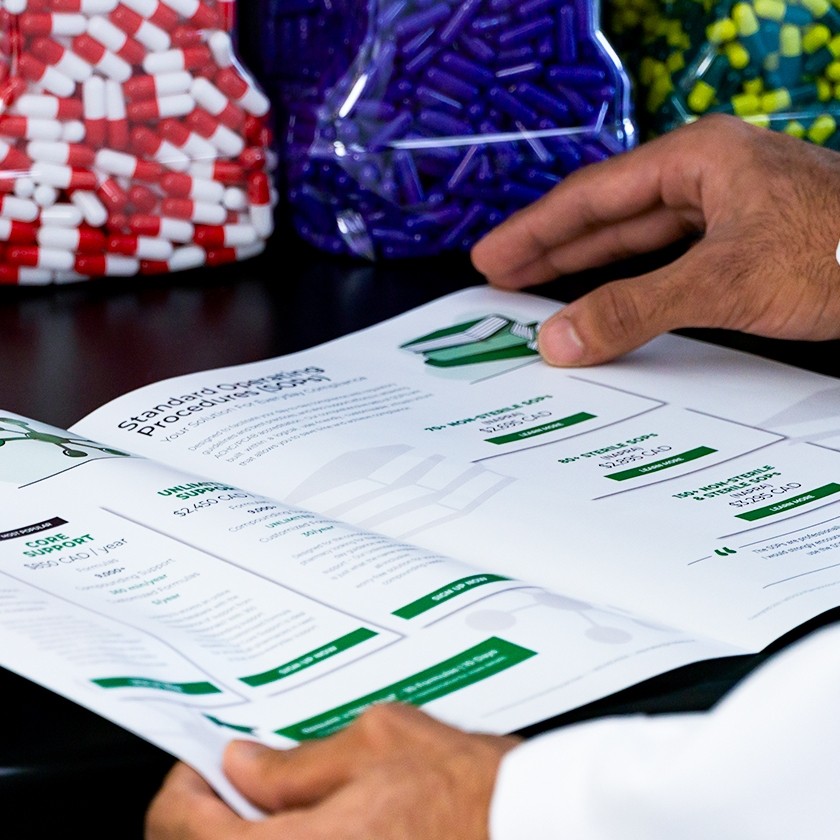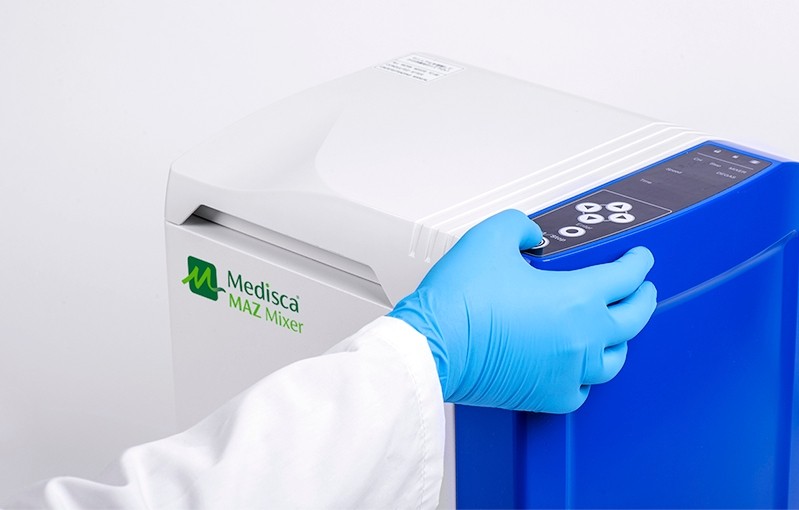Getting started in
compounding
Overcoming challenges in medication accessibility and providing transformative options for personalized patient care, pharmaceutical compounding is an essential solution that bridges the gap in healthcare to meet critical needs.

What is pharmaceutical compounding?
- Combine therapeutics
- Personalize dosing
- Tailor dosage forms
- Eliminate unwanted ingredients
- Provide solutions to product unavailability
- Enhance patient adherence

Discover the need
.jpeg&w=3840&q=90)
150 drugs, on average, are reported as being on shortage each year in the United States1. Pharmaceutical compounding acts as a critical safety net that allows providers to fill medication needs during product unavailability, like shortages. Discover how Medisca formulas and products are saving patient lives.
Providing safe medical solutions
Compounding is a highly regulated and disciplined practice that pioneered the practice of pharmacy and maintains an essential role in society today.What to look for in a
compounding pharmacy
Need help
getting started?
- American Society of Health-System Pharmacists. (2017). Drug shortages statistics. ASHP. Retrieved from: https://www.ashp.org/Drug-Shortages/Shortage-Resources/Drug-Shortages-Statistics
- McPherson, T.B. et al. (2013). Patient-centered care as a value-added service by compounding pharmacies. International Journal of Pharmaceutical Compounding, Vol 17. P 339-343.
Azer, S.A., Kanugula, K., & Kshirsagar, R.K. (2023). Dysphagia NIH – National Library of Medicine. StatPearls.
Beubler, E., et al. (2006). The white paper on opioids and pain: A pan-European challenge: The European white paper on the use of opioids in chronic pain management. J Pain Palliative Care Pharmacother., 20, 79-87.
Branvold, A & Carvalho, M. (2014). Pain management therapy: the benefits of compounded transdermal pain medication. J Gen Practice. 2:6.
- Vowles KE, McEntee ML, Julnes PS, Frohe T, Ney JP, & van der Goes DN (2015). Rates of opioid misuse, abuse, and addiction in chronic pain: a systematic review and data synthesis. Pain, 156, 569–576.
- Simon, JA. (2014). What if the Women’s Health Initiative had used transdermal estradiol and oral progesterone instead? Menopause. 21(7):769–783.
- Biondi, B & Wartofsky, L. (2012). Combination treatment with T4 and T3: toward personalized replacement therapy in hypothyroidism? J Clin Endocrinol Metab. 97:2256–2271.
- Bieber, T. (2013). Advances in the management of atopic dermatitis. Future Science Group.
- Koyama, G., Liu, J., Scaffidi, A., Khazraee, M., & Epstein, B. (2015). Novel Approaches to Topical Psoriasis Therapy. International journal of pharmaceutical compounding, 19(5), 357–365.
Hay R.J., et al. (2014). The global burden of skin disease in 2010: An analysis of the prevalence and impact of skin conditions. Journal of iIvestigative Dermatology. 134(6): 1527-1534



